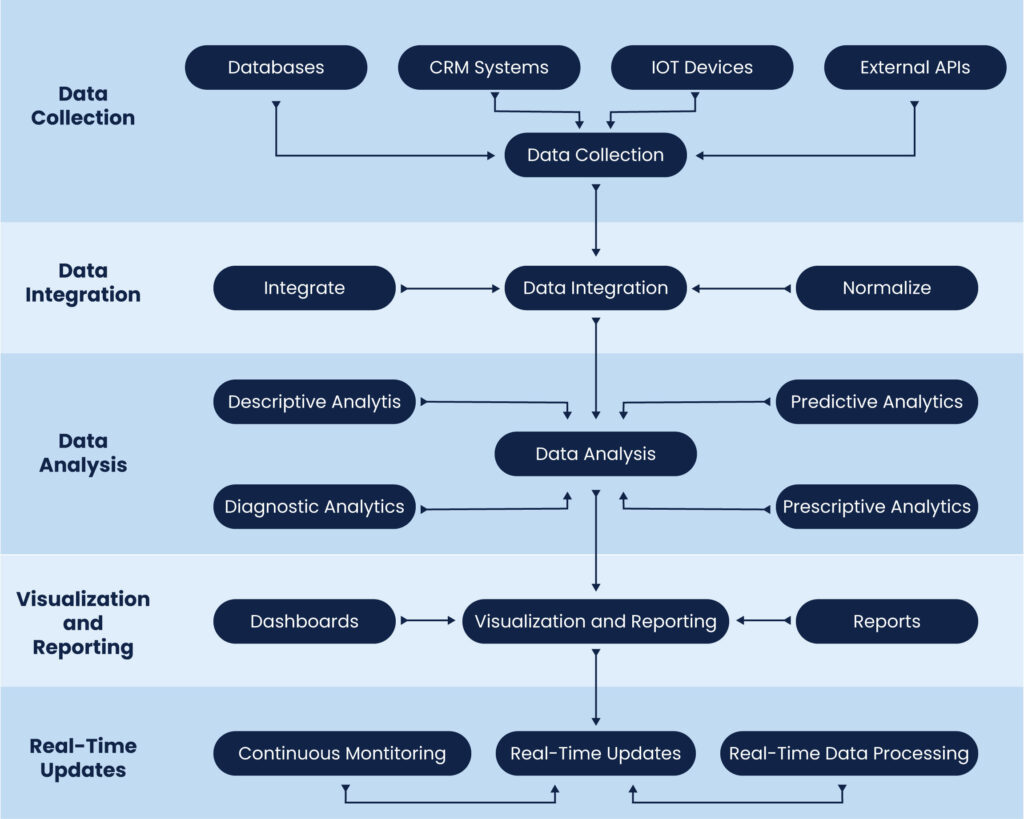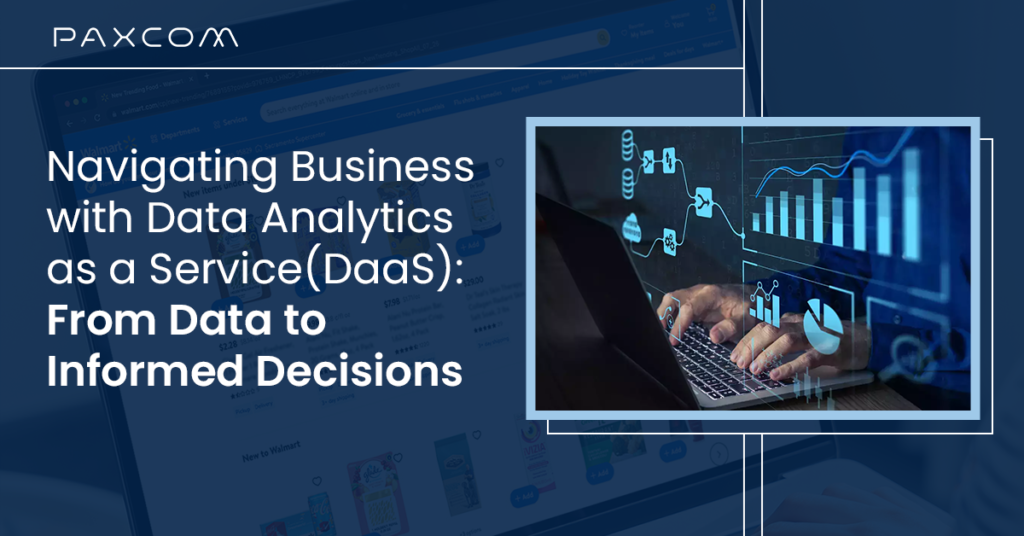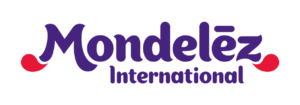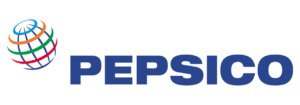In today’s data-driven world, businesses sit on a goldmine of information. Yet, extracting the true
potential of this data often remains a challenge. This is where Data Analytics as a Service (DaaS) comes
into play. The market for DaaS is expanding rapidly, with a projected compound annual growth rate
(CAGR) of 36.9% and a value of $61.42 billion by 2030.
Data as a Service (DaaS) is a transformative approach to cloud-based data distribution that makes data
easily accessible wherever it’s needed. As companies seek to leverage their data for operational,
analytical, and machine-learning processes, DaaS has emerged as a popular solution. But how does DaaS
work, and why is it crucial for businesses today? Let’s dive into its nitty gritty, why it’s transforming the
business landscape, and how it can add value to your organization.
Table of Contents
How Does DaaS Work?

Picture DaaS as a high-tech mining operation, extracting precious insights from the raw ore of your data.
Here’s a breakdown of the process:
- Data Collection: Imagine the process beginning with miners extracting ore from different parts of a mountain. Similarly, data is gathered from various sources like databases, CRM systems, IoT devices, and external APIs, then uploaded to a cloud platform.
- Data Integration: Once the ore is collected, it’s transported to a processing facility where it’s sorted and cleaned. In the same way, the collected data is integrated and normalized to ensure consistency and accuracy, making it ready for analysis.
- Data Analysis: The cleaned and sorted ore is then subjected to advanced processing techniques to extract valuable metals and minerals. This is akin to applying advanced analytical tools and algorithms to the integrated data to generate valuable insights, including descriptive analytics (what happened), diagnostic analytics (why it happened), predictive analytics (what will happen), and prescriptive analytics (what should be done).
- Visualization and Reporting: After the precious materials are extracted, they are refined and crafted into valuable products ready for market. Similarly, the analyzed data is presented in an easily understandable format through dashboards and reports, enabling users to interpret and act on the insights effectively.
- Real-Time Updates: Just as a modern mining operation continuously monitors and adjusts its processes in real-time to ensure optimal efficiency and output, DaaS platforms provide real-time data processing and updates, ensuring the insights remain current and relevant.
Why DaaS is a Game-Changer?
● Cost-Efficiency: Building and maintaining an in-house data analytics team and infrastructure is expensive. DaaS eliminates these costs, offering a pay-as-you-go model perfect for businesses of all sizes.
● Scalability: With DaaS, you can scale your analytics capabilities up or down based on your needs. Whether you’re analyzing seasonal sales trends or conducting a one-off market research project, DaaS adapts to your requirements.
● Expertise on Demand: Accessing the latest data analytics tools and methodologies can be daunting. DaaS providers bring cutting-edge technology and expertise, ensuring your analytics are always top-notch.
● Focus on Core Business: By outsourcing your data analytics needs, you can focus on what you do best – running your business. Let the experts handle the data while you drive growth and innovation.
Key Components of DaaS
● Data Storage: DaaS platforms typically offer robust and scalable data storage solutions. These solutions can handle vast amounts of data, ensuring that businesses can store their data securely and access it as needed.
● Data Processing: Efficient data processing is at the heart of DaaS. Advanced algorithms and high-performance computing capabilities allow for rapid data analysis, enabling businesses to derive insights in real time.
● Data Visualization: Visualization tools are crucial for making sense of complex data. DaaS platforms often include powerful visualization capabilities, allowing users to create intuitive and interactive charts, graphs, and dashboards.
● Machine Learning and AI: Many DaaS solutions integrate machine learning and AI technologies to enhance data analysis. These technologies can uncover patterns and trends that traditional methods might miss.
Key Benefits of DaaS
- Enhanced Decision Making: You can make quicker and more accurate business decisions with real-time data insights. Imagine knowing which products are likely to trend next season or identifying operational inefficiencies instantly.
- Competitive Edge: Data-driven insights give you a competitive edge. You can predict market trends, understand customer behavior, and tailor your strategies to stay ahead of the curve.
- Improved Customer Experience: By analyzing customer data, you can personalize experiences, improve customer satisfaction, and foster loyalty. For example, e-commerce platforms can recommend products based on individual browsing habits, leading to higher conversion rates.
- Risk Management: DaaS helps in identifying potential risks and mitigating them proactively. From financial forecasting to fraud detection, analytics can safeguard your business from unforeseen challenges.
Choosing the Right DaaS Provider
When selecting a DaaS provider, consider the following factors:
● Customization: Ensure the provider can tailor their services to meet your specific business needs.
● Security: Data security is paramount. Choose a provider with robust security measures and compliance with industry standards.
● Integration: The service should seamlessly integrate with your existing systems and workflows.
● Support and Training: Opt for a provider that offers comprehensive support and training to help
your team leverage the analytics tools effectively.
Common Misconceptions About DaaS
● It’s Only for Large Companies: While large enterprises benefit from DaaS, it’s equally valuable for small and medium-sized businesses looking to leverage data analytics without substantial investments.
● It’s Too Expensive: DaaS is often more cost-effective than building an in-house analytics infrastructure, and it offers flexible pricing models for different budgets.
● It Compromises Data Security: Reputable DaaS providers prioritize data security, employing advanced measures to protect your information.
The Future of DaaS
The future of DaaS is incredibly promising. With AI and machine learning advancements, DaaS will become even more powerful, offering predictive and prescriptive analytics that can transform entire industries. Integrating natural language processing (NLP) will make data insights more accessible, allowing even non-technical users to harness the power of analytics.
Final Thoughts
Data Analytics as a Service (DaaS) goes beyond being merely a technological advancement; it is a strategic enabler that propels businesses toward a data-centric future. By providing cost-effective, scalable, and expert-driven analytics solutions, DaaS equips organizations to transform raw data into
actionable insights. This capability not only facilitates informed decision-making but also enhances customer experiences and sharpens competitive edges.














